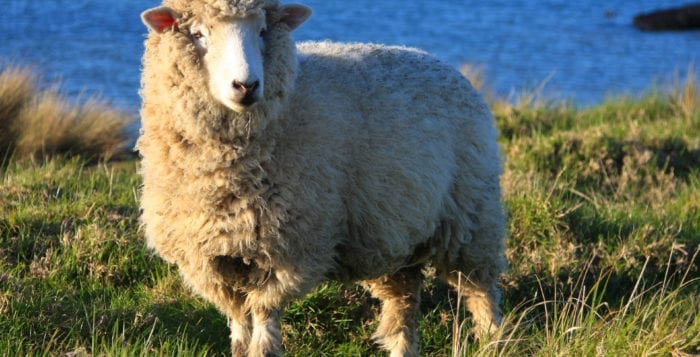By Elof Axel Carlson
Dolly was a Dorset Finn breed of sheep born in 1996 in Scotland. She was conceived from a nucleus taken from a breast cell of an adult healthy sheep that was transferred into the cytoplasm of an egg of a different breed whose nucleus had been removed.
Dolly was the first successful live-born lamb out of about 250 tries. She was named for Dolly Parton. Ian Wilmut and Keith Campbell were the scientists who constructed her. Dolly began developing arthritis at age 5 and died a year later showing signs of old age. Normal life expectancy for a Dorset sheep is 12 years. It was thought that the cloning nucleus from the donor Dorset sheep passed on its age to Dolly at birth and that this led to her premature aging. That turned out to be false.
Kevin Sinclair, a developmental biologist in England, obtained four live clones from the breast tissue that was used to make Dolly. The successful live-born sheep were named Debbie, Diana, Daisy and Denise. They are now (2016) 9 years old and in perfect health.
Cloning is still inefficient and more failures (mostly during early embryonic stages) occur than successes. Success with dogs in Japan has led some pet owners to pay for a cloned twin of a favored aging pet. In Dolly’s case an electric shock was used after the transfer of the nucleus to stimulate the cell to divide. For some embryologists a series of transfers to fresh enucleated eggs is required to achieve success.
Why most fail is not known, but the field of epigenetics may supply some of the answers. Genes are coated chemically by the organism in body tissues. Normally, in males and females these coatings, which regulate whether genes are on or off, are removed in the testes or ovaries where reproductive cells are made. I do not doubt that in a decade or so scientists will learn to do that in a test tube or Petri dish. Will that technology be used commercially? Very likely. Prize race horses and beef or milk cattle could be cloned if the success rate was about 70 percent. It will probably not be better than that because natural fertilization fails in about one third of fertilized eggs, a substantial part of that being extra or missing chromosomes when sperm or egg nuclei are produced.
Living things are very complex and the chance of getting almost 100 percent “perfect” cells is virtually impossible to achieve. That is why many couples attempting to have children often take months or years before they become pregnant or seek help from an in vitro fertilization clinic.
The success of Dolly’s cloned sibling sheep worries some medical ethicists that, if applied to humans, this could be abused by narcissistic personalities who want to clone themselves. So far that hasn’t happened and many countries (and states in the U.S.) have banned cloning using human tissues. For those who enjoy watching (and betting on) horses, it raises an interesting idea. If races were eventually done with cloned champions, it would favor the training over the breeding as the basis for who wins. Imagine a field of a dozen cloned Seabiscuits and trying to figure out whose training was the best.
Elof Axel Carlson is a distinguished teaching professor emeritus in the Department of Biochemistry and Cell Biology at Stony Brook University.





